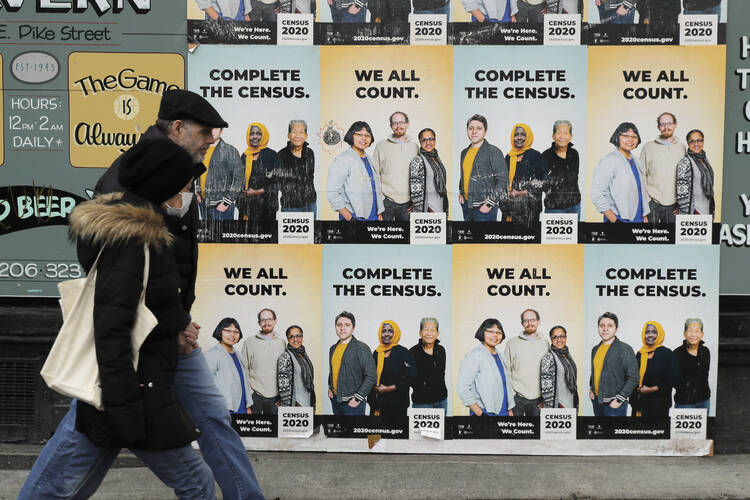Long before the Covid-19 crisis threw the accuracy of the 2020 census into even deeper doubt, in a report last June the Urban Institute attempted to gauge the depth of the potential miscount in the constitutionally mandated, decennial national headcount—now extended four months because of the pandemic. It anticipated an undercount ranging from 0.3 percent to almost 2 percent of the U.S. population. While these percentages may seem small, they mean that anywhere from 900,000 to more than four million U.S. residents could be missed.
In 2000, the Census Bureau’s own analysis found that children up to 4 years of age were especially likely to be undercounted. Why does it matter? The decennial census is used to reapportion congressional seats around the country, with each state crunching the numbers to redraw district maps, but it is also used to guide the disbursement of federal monies for social services.
The Census Bureau’s own analysis found that children up to 4 years of age were especially likely to be undercounted.
“Child-focused programs like nutrition assistance, Head Start and the Children’s Health Insurance Program rely on accurate data about where young children live to provide foundational services for children,” said Karen Deaver, who leads Census Bureau efforts to reduce the undercount of young children.
Catholic and other denominational community groups had been courted by Census Bureau officials as logical outreach partners to connect with hard-to-count communities, especially among immigrant families who may be concerned that filling out official paperwork could jeopardize their residency status or put them at risk of deportation.
Ann Scholz, S.S.N.D., is the associate director of social mission for the Leadership Conference of Women Religious. “We’ve been spreading the word about the critical importance of the 2020 census count,” she told Catholic News Service in March, adding “we know that in past censuses, millions of people of color, children and immigrants have gone uncounted.”
“We believe this undercount,” she said, “has resulted in systemic injustice resulting in underfunding of resources that we all use, like schools, hospitals, critical infrastructure.” She added, “We think that it’s even resulted in the underpreparation for critical health emergencies like Covid-19.
“We’re each made in God’s image and endowed with God’s spirit,” Sister Scholz said. “No matter our creed, our race, our gender, our immigration status—we’re worthy of being counted.”
Who’s likely to be among the missing in 2020?
- Projected undercount for the 2020 Census—between 900,000 and more than 4 million people. Some states are more at risk. California has a projected undercount that could reach almost 2 percent.
- Miscounts disproportionately affect some groups. Black and Hispanic people could be undercounted nationally by as much as 3.7 percent and 3.6 percent, respectively, in 2020.
- Children under age 5 are at risk of being undercounted by more than 6 percent.
- About 4.5 million kids live in places—from dense urban areas to rural expanses to tribal communities—where completing an accurate count is especially challenging.
- In 2017, 316 federal spending programs relied on 2010 Census-derived data to distribute $1.5 trillion to state and local governments, nonprofits, businesses and households across the nation.
- Self-response by mail and internet: 67.4 percent in 2000; 66.5 percent in 2010; 51.8 percent so far in 2020.
Sources: Census Bureau, GW Institute of Public Policy, Urban Institute, Annie E. Casey Foundation.










